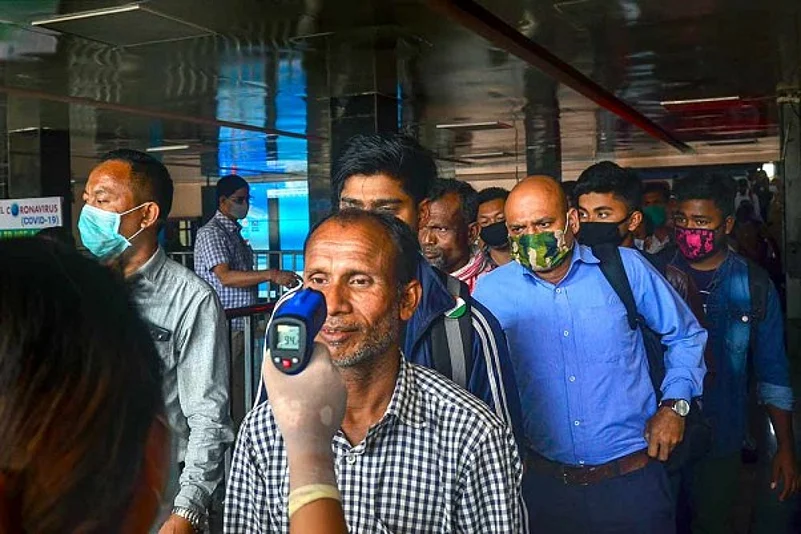Noted epidemiologist Dr Jayaprakash Muliyil has dismissed the notion that SARS-CoV-2 virus, which causes respiratory disease Covid-19, has become more infectious in cities like Delhi leading to an increase in the number of infections.
Dr Muliyil is of the view that people have become more susceptible because of change in their behaviour ahead of the festive and wedding seasons.
He has dismissed the view held by many that the increase in the cases of Covid-19 in Delhi and in some other parts of the country is due to the increased infectivity of the virus. He said that it is against the basic principle of epidemiology.
Advertisement
Delhi has witnessed an increase in positivity rate in November. It was at its peak in June with above 30 per cent of total underwent test reported positive. However, it came down to 5.7 per cent in August and remained fluctuating between 6 to 7 per cent till October.
In November, it has gone above 15 per cent. It has resulted in several times increase in the number of deaths. November 18 has reported 131 deaths which is highest ever.
“Virus is the same. It doesn’t become more or less infectious. It is the general behaviour of the people which change after a while due to various socio-economic reasons,” Dr Muliyil said, adding that people themselves are responsible for any new wave.
Advertisement
“Look at the old containment areas of Delhi where sero survey has suggested that 44 per cent population has got infected. You can’t find any new wave there. They are living peacefully,” he said.
He added, “You will not see the spurt in the number of infected persons in those areas because most of them have already developed anti-bodies and herd immunity. However, the new containment zones have shown an increase in numbers.”
According to Dr Muliyil, people normally get bored of either staying at home or interacting with the same group of people and so they venture out after a few months to meet new contacts, friends, colleagues.
“One person picks up the virus from his or her new contacts and brings it to his friends and family members. That’s how the new wave starts,” he said. “You operate in a safe bubble and then it bursts once you venture out of it,” Dr Muliyil said. He said increase in infection is not a cause for concern but it is a rise in mortality rate which is problematic.
“Rise in mortality rate shows that we are not taking care of our elders. So people should avoid making new contacts or going out for another four or five months till the time we have vaccine available,” he said.




















